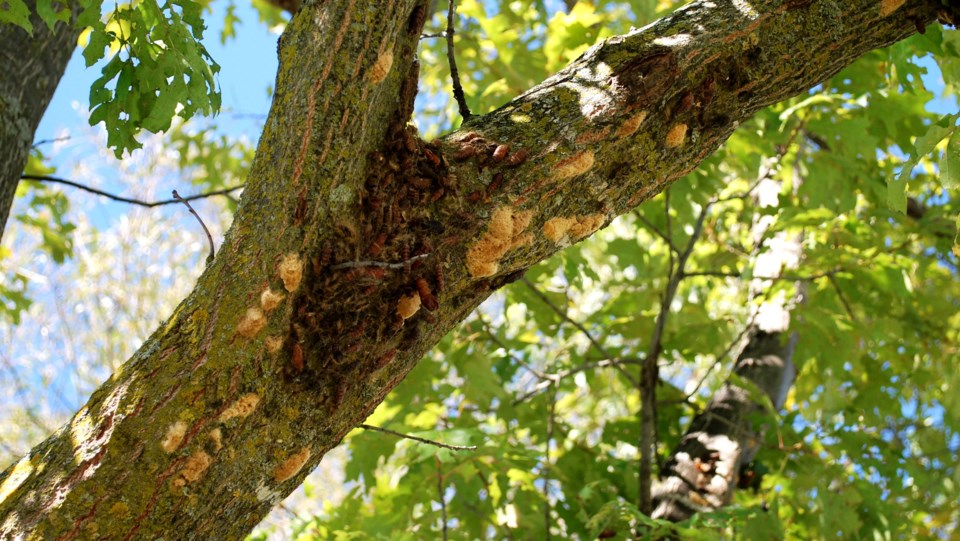The Town of Newmarket is asking for more public support as it plans the next phase of its battle against the Lymantria dispar dispar moth.
The town is planning to increase the tree banding kits it will hand out from 2,500 to 4,000 in 2022 as it asks the public to safeguard their own trees against the invasive species. The municipality is spending approximately $189,200 next year for the program to protect the most vulnerable trees.
Mayor John Taylor said the municipality is in for another difficult year managing the insect, and continued community help is needed to lessen the impact.
“We really do need the whole community participating along with the town,” Taylor said. “We really are calling the community to do everything they can in terms of scraping and burlap.”
Council reviewed an LDD management report at its Nov. 15 meeting, detailing the latest on the fight against the insect that can harm trees by eating leaves. The municipality highlighted successful public engagement efforts to get residents to remove caterpillars, as well as staff removing egg masses from 2,500 trees. But the insect is expected to be a force for the next year, with the town planning egg removals for another 2,000 trees.
“Newmarket experienced a significant LDD infestation in 2021 with the highest level of defoliation in the southwest,” a staff report said. “Egg mass surveys performed this summer are predicting moderate to severe population levels throughout the town in 2022.”
The infestation tends to be in cycles and happens approximately once every decade. Control measures do not prevent the overall population increasing, but a natural virus tends to rapidly reduce the moth population after two to five years.
Councillor Kelly Broome commended staff efforts on the file.
“I really think that getting ahead of it is the best way for us to have a much better year of less creepy crawlies,” she said.
Taylor asked staff to consider street sweeping to deal with caterpillar droppings in extreme cases. The staff report said they monitored the situation but found sweeping unneeded in 2021, but Taylor said it was hazardous in some areas.
The municipality has also avoided using measures like spraying pesticides to this point due to environmental impact. But staff plan to use limited amounts of pesticides next year, including the ground spray Bacillus Thuringiensis to protect 150 sensitive young trees in 2022, and a TreeAzin injection for 13 high-value oak trees too big for alternatives.
Council committee of the whole deferred a decision on the file. Staff proposed to cut back on new tree planting to help fund the LDD effort given fresh trees might struggle against the insect, but Taylor asked for alternative options.



